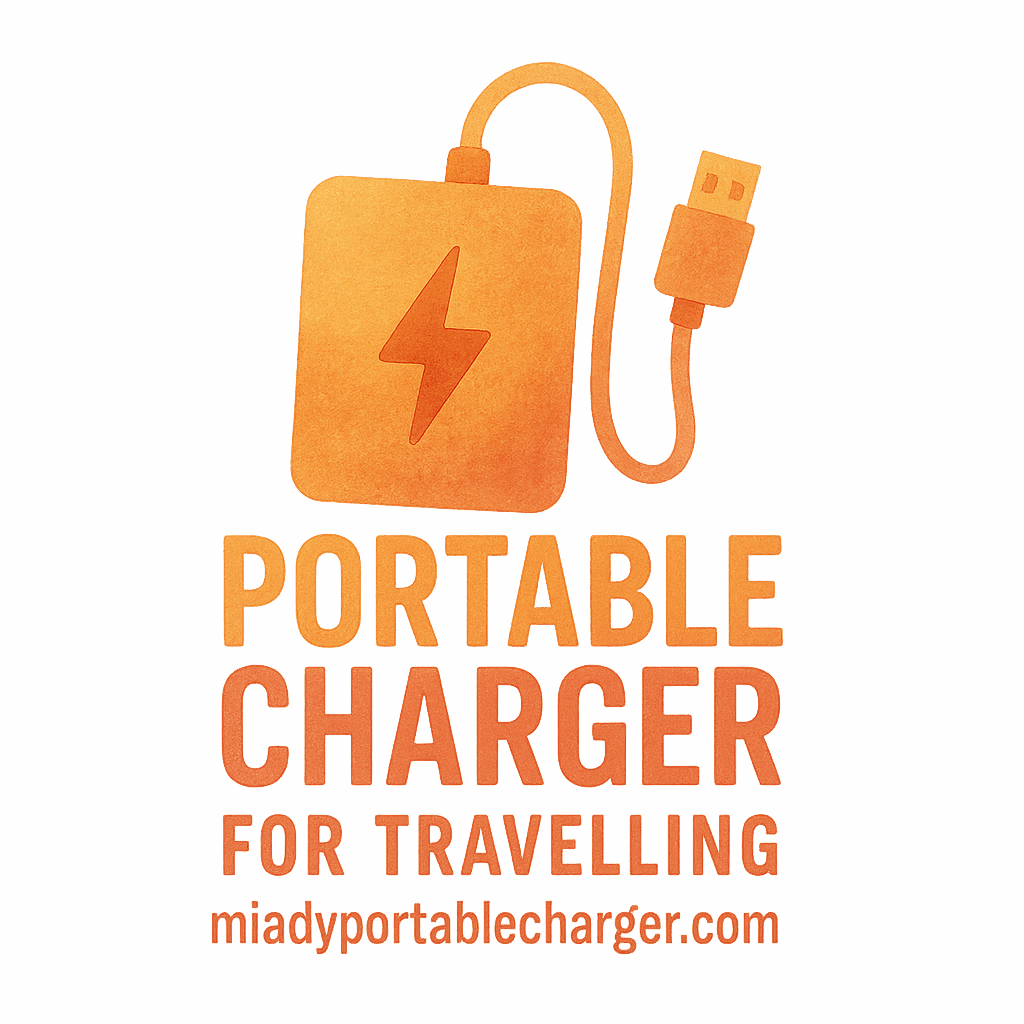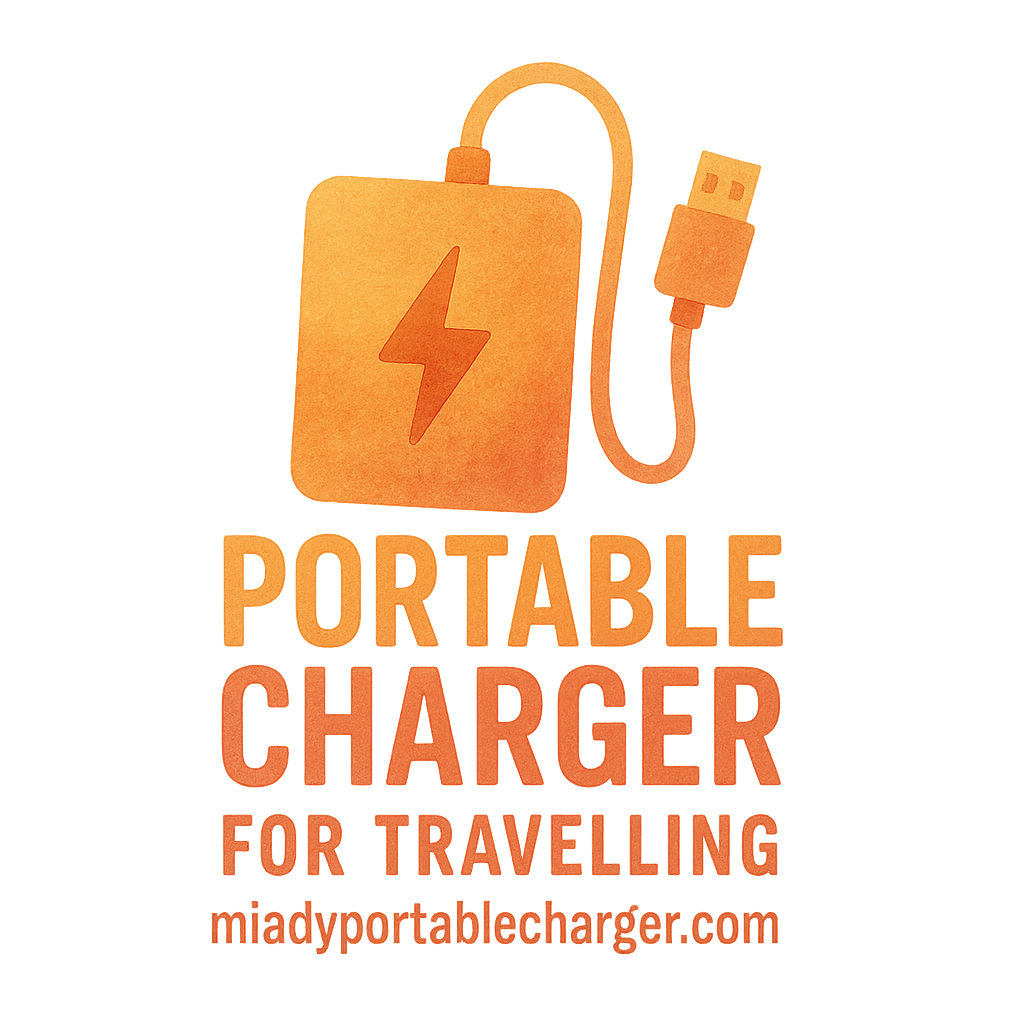Why Portable Chargers Are Essential on the Road
Whether you’re embarking on a road trip, heading off on an international adventure, or just commuting long distances, one thing’s for sure: you need a reliable way to keep your devices charged. Think about it: your phone is your navigation system, your camera, your communication tool, and even your entertainment. The last thing you want is to find yourself with a dead battery in the middle of nowhere, right?
This is where portable chargers come into play. A portable charger can be a lifesaver when you’re on the move, providing a quick and easy way to juice up your devices no matter where you are. But not all portable chargers are created equal, and there are specific specs you should pay attention to when choosing the right one for your road trip.
In this article, we’ll break down the 5 most important portable charger specs that matter most when you’re on the road.
1. Understanding Battery Capacity in Portable Chargers
What is Battery Capacity and Why Does It Matter?
Battery capacity is the amount of charge a portable charger can hold, measured in milliampere-hours (mAh). A higher mAh means a charger can provide more power and charge your devices more times before needing to be recharged itself.
When you’re on the road, you need a charger that can handle more than just a quick top-up. If you’re going to be on the road for extended periods, especially in areas without easy access to power outlets, a charger with a higher capacity is crucial.
How Battery Capacity Affects Performance
The bigger the battery, the more power it can deliver. For example, a 10,000mAh portable charger might charge your phone one or two times, while a 20,000mAh charger could potentially charge it four or five times. It’s all about the power-to-weight ratio here—balancing how much battery capacity you need with how much bulk you’re willing to carry.
Recommended Battery Capacities for Different Travel Types
- Short road trips (1-2 days): A portable charger with around 10,000mAh should suffice, as you’re likely not going to be away from power sources for long.
- Long road trips or camping trips: Consider a 20,000mAh or higher charger to ensure you can keep your devices powered for longer durations.
- Frequent travelers: If you’re always on the go, a high-capacity charger that can power multiple devices (like a 26,000mAh or more) may be necessary. For more information on the importance of capacity, check out our Buying Guides.
2. Why Charging Speed is Crucial for Road Trips
The Difference Between Fast and Standard Charging
Not all portable chargers charge at the same speed. Fast charging allows your devices to reach a full charge much faster than regular charging. This is particularly important when you’re on the move and don’t have time to sit around waiting for your phone to charge. Look for chargers that support Qualcomm Quick Charge or USB-C Power Delivery (PD) for the best speed.
How Charging Speed Impacts Your Journey
Time is often of the essence when you’re traveling. Whether you’re in a rush to get back on the road or simply don’t want to waste time waiting for your phone to charge, fast charging is a game-changer. A charger with quick charging capabilities ensures that even short charging sessions provide significant power boosts, keeping you connected without lengthy delays.
Top Charging Speeds You Should Look For
- 18W or higher for USB-C PD chargers: Ideal for most modern smartphones. Check out Charging Tips for more insights on this.
- Quick Charge 3.0 or 4.0: Perfect for Android devices and fast charging compatible phones.
- 20W-30W for even faster charging: For high-demand devices like tablets or laptops.
3. Port Compatibility for Your Devices
Different Port Types (USB-A, USB-C, etc.) and Why They Matter
You’ll want to make sure your portable charger is compatible with your devices, and this often comes down to the type of port used. Some devices use USB-A, others use USB-C, and some newer phones might even support wireless charging. It’s important to choose a portable charger that supports the right ports for your devices. If you’re unsure which port your device uses, explore our Product Reviews.
The Importance of Multi-Port Chargers for Multiple Devices
On road trips, it’s common to have multiple devices—your phone, tablet, Bluetooth headphones, or even a portable speaker—that all need charging at the same time. A multi-port charger gives you the flexibility to charge several devices simultaneously, making your life a lot easier on the go. Explore more about chargers for multiple devices on our Travel Essentials page.
Ensuring Compatibility with Your Devices
Always check the output power of each port to ensure it matches the power requirement of your device. A USB-A port might only provide 5V, while a USB-C port may deliver 9V or higher.

4. Portable Charger Size and Weight: Why It Matters
How Size Affects Portability and Convenience on the Go
When you’re on the road, every inch of space in your bag counts. A bulky charger can take up precious space, and a heavy one can add unnecessary weight. Finding the right balance between size, capacity, and weight is key.
Finding the Balance Between Capacity and Size for Travel
It’s tempting to go for a charger with the biggest capacity, but the reality is that size and weight also play a major role in convenience. Look for chargers that offer a good balance of power and portability—think about how much you’re willing to carry and what your travel style demands.
Lightweight and Compact Chargers for Travel-Friendly Options
- Small but powerful chargers (10,000mAh to 12,000mAh): These chargers can be compact yet powerful enough for a weekend trip.
- Larger chargers (20,000mAh or more): Choose these if you’re packing a lot of gear and need a power source that can handle multiple devices. For more compact options, visit our Portable Charger Reviews.
5. How Durable Should Your Portable Charger Be for Road Trips?
Importance of Durability and Waterproofing for Outdoor Travel
Traveling means encountering various environmental factors, such as rain, snow, or rough terrain. You don’t want your charger to be vulnerable to these conditions. Look for chargers that are rugged, shockproof, and waterproof for peace of mind during your adventures.
Features Like Shockproof and Water-Resistant Designs
Some chargers come with rugged exteriors, rubber coatings, and waterproof seals. These are crucial for outdoor adventures like hiking, camping, or beach trips, where conditions can be unpredictable. If you’re traveling to places with harsh weather, visit our Outdoor Charger page for top picks.
Recommended Rugged Portable Chargers for Extreme Conditions
- IP67 or higher ratings: Ensure the charger can withstand dust, dirt, and water.
- Shockproof designs: Essential for rough, bumpy rides or accidental drops.
Choosing the Right Portable Charger for Your Road Adventures
In conclusion, when selecting a portable charger for your next road trip, it’s important to consider the key specs we’ve discussed. The charger should have adequate battery capacity, fast charging speeds, multiple port compatibility, an ideal size and weight for portability, and the durability to withstand rugged conditions. Remember, every adventure is different, so tailor your choice based on the nature of your journey and the devices you need to power.
FAQs
Q1: What size portable charger should I buy for long road trips?
For long road trips, aim for a charger with at least 20,000mAh to ensure it can handle multiple charges over extended periods without requiring constant recharging.
Q2: Can I use any portable charger for my devices?
Not all portable chargers are compatible with all devices. Always check the output voltage and port compatibility before purchasing a charger for your specific devices.
Q3: How fast can portable chargers actually charge my phone?
A good portable charger should offer fast charging speeds of 18W or higher, especially if it supports Qualcomm Quick Charge or USB-C Power Delivery.
Q4: What is the best portable charger for outdoor use?
Look for rugged, waterproof chargers with a high IP rating (IP67 or higher) and shockproof features to ensure they can withstand harsh outdoor conditions. Visit our waterproof chargers guide for the best options.
Q5: Can I take a portable charger on an airplane?
Yes, most portable chargers are allowed on airplanes, but they must meet certain capacity restrictions (generally under 100Wh).
Q6: How do I know if my charger is durable enough for outdoor conditions?
Check for features like an IP rating (for water and dust resistance) and a shockproof or rugged exterior. These features ensure your charger can survive drops and exposure to the elements.
Q7: Can I charge multiple devices at once with a portable charger?
Yes, many portable chargers come with multiple ports, allowing you to charge several devices simultaneously.


